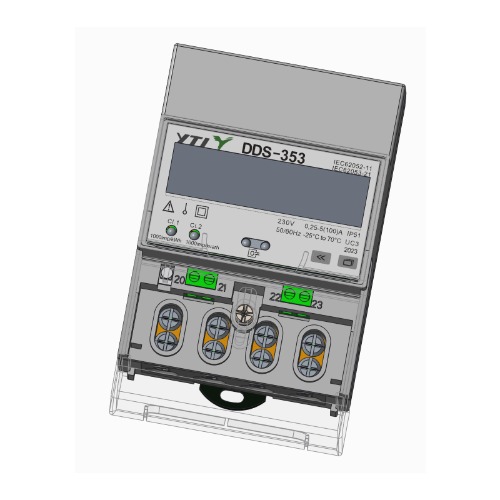Energy Meter Profile
As the world continues to expand and modernize, the demand for energy consumption steadily increases. With the rising costs of energy, it is essential for individuals and organizations to monitor and regulate their energy consumption to reduce waste and save money. This is where energy meters come into play - devices that measure the amount of energy consumed by a specific electrical appliance or an entire building.
The energy meter is an electronic device that is designed to measure the amount of electricity that is being used. Its main function is to provide the user with an accurate reading of how much energy is being consumed. The meter is typically installed in a building or home and is connected to the main power supply. This allows it to measure the energy usage of the entire building or home. The energy meter is also equipped with a display that shows the energy usage in real-time.
There are several types of energy meters available on the market, each with their own set of features and capabilities. The common type is the single-phase energy meter, which is used in a majority of homes and buildings. These meters measure the energy usage of single-phase electrical circuits, which are commonly found in buildings with low power requirements.
Another type of energy meter is the three-phase energy meter, which is used in larger buildings and industrial applications. These meters are capable of measuring the energy usage of three-phase electrical circuits, which are commonly used in buildings with high power requirements.
Smart energy meters are becoming increasingly popular because they offer numerous advantages over traditional energy meters. These meters have communication capabilities that enable them to transmit energy usage data wirelessly. This means that the data can be automatically sent to the utility company, eliminating the need for manual readings.
Smart energy meters also provide consumers with real-time information on their energy usage, allowing them to adjust their behavior and save on energy costs. These meters can also be programmed to automatically turn off appliances during peak demand periods to reduce overall energy consumption.
In conclusion, the energy meter is a vital tool for monitoring and regulating energy usage. With the rising cost of energy and growing concern for the environment, it is important for individuals and organizations to invest in energy meters to monitor their energy usage. By implementing energy-saving techniques and using the data provided by energy meters, we can reduce energy consumption and save money while preserving the environment for future generations.

 English
English 中文简体
中文简体









.png?imageView2/2/w/500/h/500/format/png/q/100)





